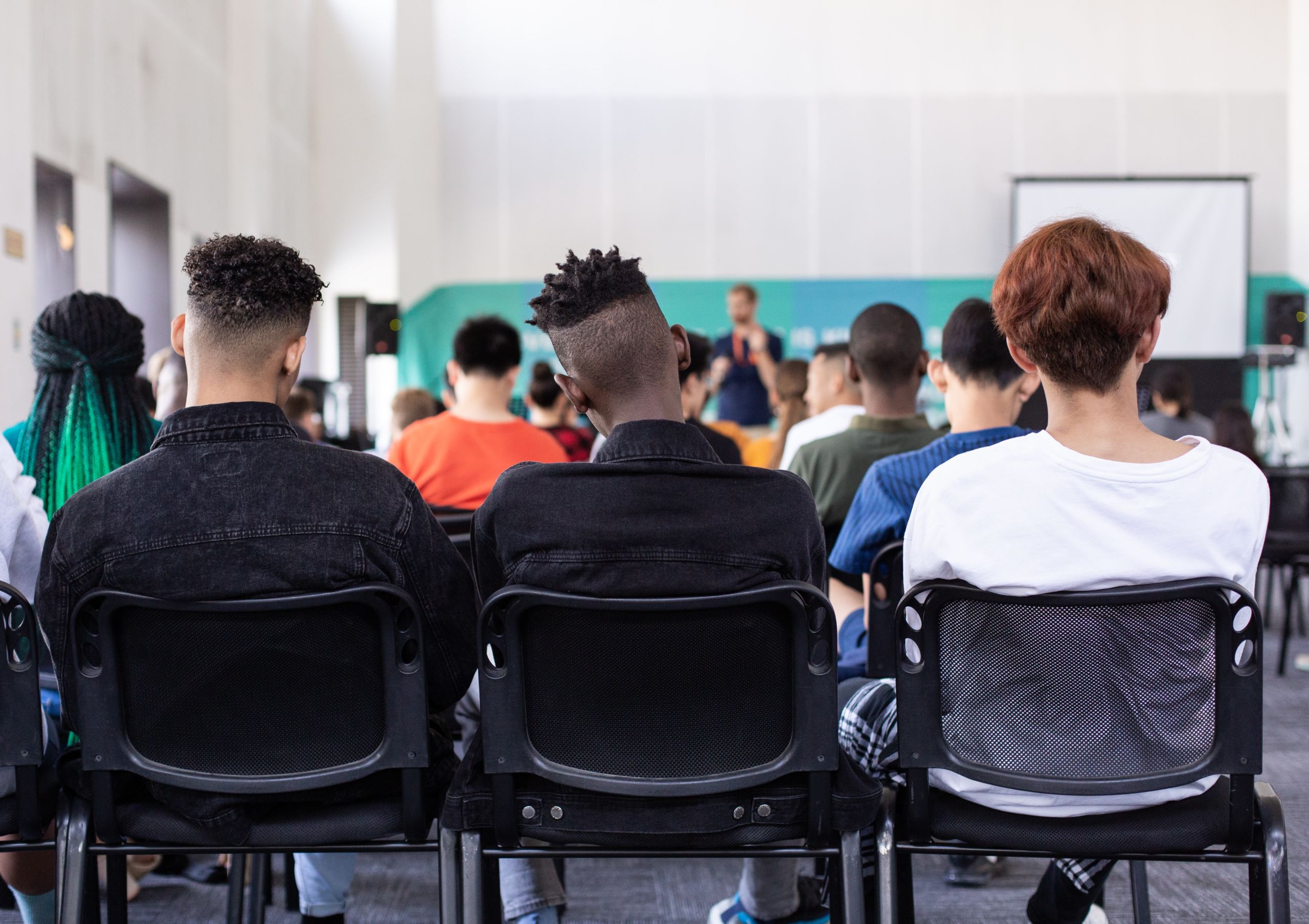By: Christian White, Communications and Marketing Assistant, Center for the Advancement of Well-Being
“It’s not the load that breaks you down, it’s the way you carry it.” – Lena Horne
I remember when I was a freshman walking into one of my first classes at Mason. Almost immediately after sitting down, I realized that I was the only Black student in the class. This wasn’t my first experience in such a situation, but I felt like coming to college would offer more diversity so that I wouldn’t experience that again. Unfortunately, this turned out to be a common occurrence in many of my classes. Within these circumstances, the constant need to code-switch emerged. Code-switching, as defined by University of Michigan Professor Myles Durkee, “is the shifting or manipulating one’s behaviors to appeal to a different crowd or audience.” I felt the need to change my voice and my demeanor in order to “fit in” with the rest of my classmates and not seem less-than or threatening. I felt the unnecessary responsibility of representing my entire race in the best way possible. I would often feel “othered” and uncomfortable when sensitive social or political topics were discussed. This stress, piled on top of the already-stressful rigors of a typical college course, was a lot to handle.
According to Pew Research, Black and Hispanic Americans — particularly younger, college-educated African Americans — feel the need to code-switch or change their behaviors around their white colleagues. Many Black, Hispanic, and other college-educated students of color find code-switching necessary in order to succeed in education.
At the time, I didn’t have a full understanding of the many systemic issues at play that affect the well-being of BIPOC students that white students don’t have to face. Code-switching is just one of the many barriers BIPOC students face that challenge their well-being. The unique stress of professors not pronouncing your name properly, dealing with microaggressions, worrying that your hair won’t be seen as “professional” enough, not feeling seen or heard, and dealing with various forms of racial trauma can all have a negative effect on the well-being of a BIPOC student.
Historically, mental health resources for BIPOC communities have always been severely underwhelming or nonexistent. According to a study by the Journal of the American Academy of Child & Adolescent Psychiatry and the United Brain Association, there was no difference in mental health resource availability between a 1999 study and a recent 2020 study. Despite a 21-year time lapse, access and availability of mental health resources for minority communities was still drastically less than communities with majority white populations.
BIPOC Well-Being at Mason
BIPOC Well-Being Month, which Mason celebrated in October 2021, offered many opportunities for BIPOC students to strengthen their well-being. Each week presented well-being learning opportunities and practices focused around a different theme. In several videos on this page, BIPOC students share their perspectives on well-being.
I wish we had BIPOC Well-Being Month when I was a student. I’m thrilled that Mason is promoting well-being among communities of color by acknowledging and addressing the challenges that are unique to the BIPOC student community. It’s important that the struggles BIPOC students face are being addressed on a university-wide level with resources and tools for support. Because of this, students can understand that they’re not alone in these challenges, and that they have a community to lean on. While one month alone will not solve the systemic barriers that threaten the well-being of BIPOC students, the many events, resources, and tools offered will provide a great opportunity for all of us to acknowledge these barriers, grow in our understanding of them, heal individually or collectively, and celebrate our identities.
Additional Resources
Mason’s Rx Racial Healing Circles give students, faculty, staff, and alumni opportunities to engage in powerful well-being conversations. In the circles, people share stories that help them learn, grow, and connect.
Mental Health America’s BIPOC mental health webpage presents a wealth of resources.
The Mental Health Coalition’s BIPOC mental health resources guide features helpful information from many different organizations.
Write one of these Thriving Together Series features! We’re looking for contributions on all topics related to well-being. Read other Thriving Together Series articles here and contact us at cwb@gmu.edu for guidelines. Thank you for helping our Mason community thrive together online!






















